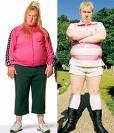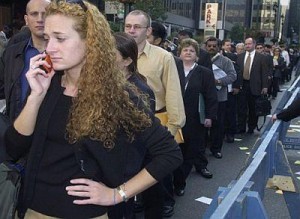 Below is an article describing a study of ‘Little Britain’ that was carried out by the London School of Economics. Do you agree or disagree with this report.
Below is an article describing a study of ‘Little Britain’ that was carried out by the London School of Economics. Do you agree or disagree with this report.
A study by a London School of Economics academic said many of the show’s characters – from teenage mum Vicky Pollard to proud gay Daffyd – are stereotypes based on people’s dislike of others of a different class, sexuality, race or gender.
Researcher Deborah Finding branded the show as “the comedy equivalent of junk food”.
“It is clear that when ‘we’, the audience, are invited to laugh at ‘them’, the characters – we are laughing not only at the figures on screen but at entire groups of people whom they come to represent,” she said.
“Little Britain does far more to promote racism, sexism, homophobia, ageism and classism than it does to satirise them – though it does do that from time to time.
“To claim that it is ironic is to miss the point that comedy constructed about the other – that which is different from us – involves the mocking of minority groups in a way that winds the clock back to the pre-alternative days of (controversial British comedian) Bernard Manning.”
In her study, Ms Finding analysed the show’s characters and found that their physical traits were used to project fears about homosexuals, the working class and minority groups.
She said that in laughing at Vicky Pollard – a fat, chain-smoking, single mother – audiences were expressing their fears and hatred of the working class.
Viewers saw Vicky, with her “stereotypical body”, as having the features of all working-class single mums, “feckless, stupid and promiscuous”, Ms Finding said.
“Even Daffyd, the self-proclaimed only gay in the village, is a character who connects the idea of being homosexual with being ridiculous and therefore relies on mainstream fears about gayness, despite the fact that Daffyd is the creation of comedian Matt Lucas – who is himself gay,” she said.
http://www.news.com.au/heraldsun/story/0,21985,24569448-5005961,00.html
For more clips from our Poverty and The Media project please visit our Archive
To find out more information about our Poverty and The Media project please visit our Project Page

